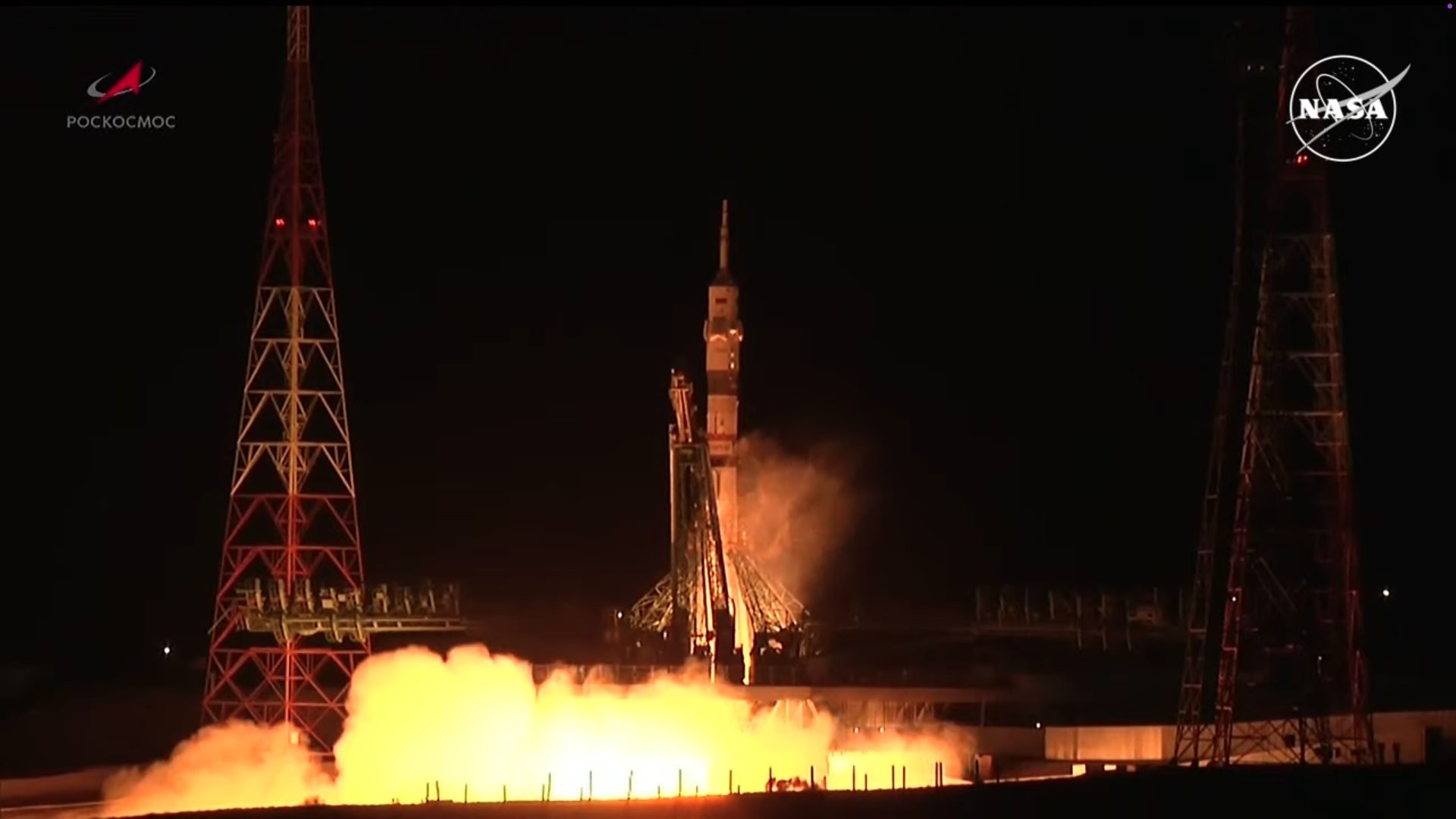
Earth orbit is busier right now than it's ever been.
Three people launched toward the International Space Station (ISS) today (Sept. 11) aboard a Russian Soyuz capsule, pushing the total number of people in Earth orbit to a new high-water mark.
"With the trio now in orbit, there is a record of 19 people currently in orbit," NASA commentator Anna Schneider said during the agency's webcast of the Soyuz liftoff. The old record was 17, set last year.
The Soyuz that launched today is carrying NASA's Don Pettit and cosmonauts Alexey Ovchinin and Ivan Vagner. The trio is expected to arrive at the ISS around 3:30 p.m. EDT (1930 GMT), just three hours after launch.
They'll join nine people aboard the orbiting lab: NASA astronauts Michael Barratt, Tracy Caldwell-Dyson, Matthew Dominick, Jeanette Epps, Barry Wilmore and Suni Williams, and cosmonauts Nikolai Chub, Alexander Grebenkin and Oleg Kononenko.
Wilmore and Williams were supposed to be home already; they launched this past June on Crew Flight Test (CFT), the first-ever crewed mission of Boeing's Starliner capsule. CFT was supposed to last just 10 days or so, but Starliner suffered thruster problems in orbit, and NASA kept the capsule docked to the ISS for three months while studying the issue. Ultimately, the agency decided to return Starliner to Earth uncrewed — which happened over the weekend — and bring Williams and Wilmore home on a SpaceX Crew Dragon capsule next February.
Related: The most extreme human spaceflight records
There are also three people living aboard China's Tiangong space station at the moment — Li Cong, Li Guangsu and Ye Guangfu of the nation's Shenzhou 18 mission — and four astronauts inhabiting a free-flying Crew Dragon.
That quartet — Jared Isaacman, Scott Poteet, Sarah Gillis and Anna Menon —launched Tuesday (Sept. 10) on the five-day Polaris Dawn mission. Their Crew Dragon, named Resilience, has already gotten farther from Earth than any crewed vehicle since the Apollo era, and Polaris Dawn aims to make more history soon: Isaacman and Gillis plan to conduct the first-ever private spacewalk at around 2:20 a.m. EDT (0620 GMT) on Thursday (Sept. 12).
The record for most people in space overall is 20, set in May 2023 and then tied on Jan. 26 of this year. On both occasions, 14 orbiting spaceflyers were joined briefly in the final frontier by six space tourists who reached the suborbital realm aboard Virgin Galactic's VSS Unity space plane.
VSS Unity gets more than 50 miles (80 kilometers) above Earth, which NASA and the U.S. military regard as the beginning of outer space. But the vehicle doesn't reach the 62-mile-high (100 km) Kármán line, which some other people and organizations recognize as space's boundary.
For Kármán line devotees, the "most people in space" record is 19, set during the NS-19 flight of Blue Origin's suborbital New Shepard vehicle on Dec. 11, 2021 — and tied today with the Soyuz launch.







